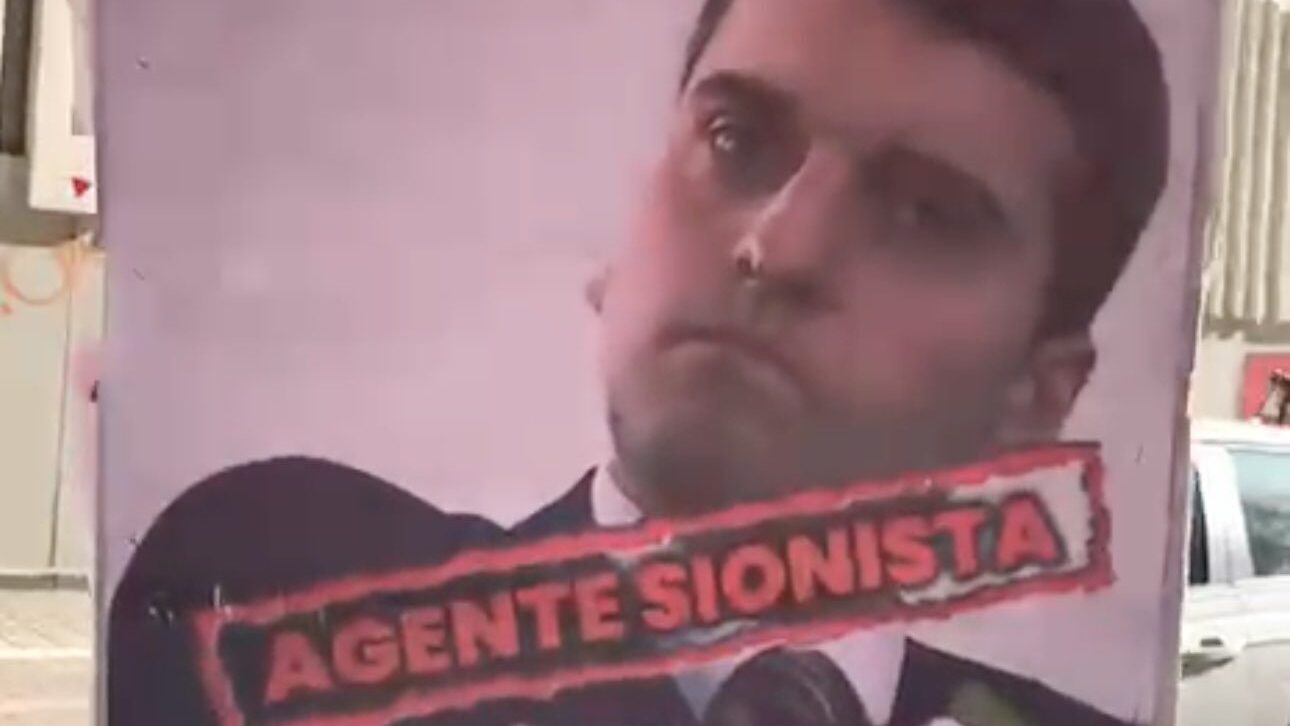
Francesco Giubilei is an Italian editor, columnist, author, and president of the conservative think tank Nazione Futura. Last Saturday, during a far-left pro-Palestinian demonstration, Giubilei, along with politicians such as Guido Crosetto and Liliana Segre, was singled out by New Italian Communist Party demonstrators. The protestors carried placards including his photo and the caption “Zionist agent,” and called for “making their lives miserable.”
Firstly, because I was in Israel after the events of 7 October, doing a report on the kibbutz and some interviews with Israeli refugees. But also because we have published information, in Nazione Futura, and I have spoken on television and written articles in Il Giornale about the activities of these far-left groups that have held demonstrations and protests against Israel in Italian universities. And also because we have published books by Jewish authors, like Fiamma Nirestein, Yoram Hazony, and Emmanuel Navon, in our publishing house.
I was very impressed because it wasn’t a normal demonstration. It was people from radical groups who have criminal records; some of them have even been imprisoned. So we’re talking about dangerous people. This New Italian Communist Party is still a clandestine group, and it uses the same methods of targeting that the Red Brigades used in the 1970s. In Italy, we know red terrorism very well. We denounced it, and two weeks later I was on the list.
Everyone has the right to demonstrate in favour of Palestine, but there is a big difference between the ‘right to demonstrate’ and making blacklists with the names of journalists, politicians, Jews, and people who simply support Israel. That is not freedom of expression; it is targeting that can lead to violence against the people targeted.
Yes; it is the same kind of behaviour, and it is a very dangerous thing. On Friday and Saturday, we had the conference of Italian conservatives in Rome. Saturday is the same day that many radical left-wing groups chose to demonstrate in the capital against Israel, and it would not be unreasonable to think that some of these groups would try to approach our conference and disrupt it violently. For this event, we have police protection so that no clashes can take place, but the problem could arise at any other event we hold where the police are not present. It is a problem for our security.
No, I have not filed a complaint at the moment, but the police have taken action and are investigating the demonstration for incitement to racial hatred. So I hope that this matter will end up in the hands of the public prosecutor’s office.
This radicalism that we are seeing in Italy is also happening throughout the West, and it is a danger to Jews. For example, the public university in Rome has invited Leila Khaled—who cannot come to Italy, because the police denied her entry in 2017 due to her terrorist affiliations—to give a lecture via Skype. This is unacceptable.
Of course there is more space to work, and at Nazione Futura we are constantly organising lectures and conferences. But the Left has not lost any of its strength, either in the universities or in its influence on the media. In general, there is more hope and a climate of optimism in the conservative world, which attracts more people to our activities—although it is still more complicated than in other areas, such as the economy, where the Right has much more space. We still have a lot of cultural battles to fight to change this situation.
Yes; this is our third edition, and it is a very important event for the conservative movement in Italy. We talk about different topics, from the school of merit to nature conservation, from judicial reform to the fight against political correctness and woke culture. Moreover, this year, unlike in previous years, we will have left-wing panelists in some of the talks, which will serve to stimulate very interesting debates.
